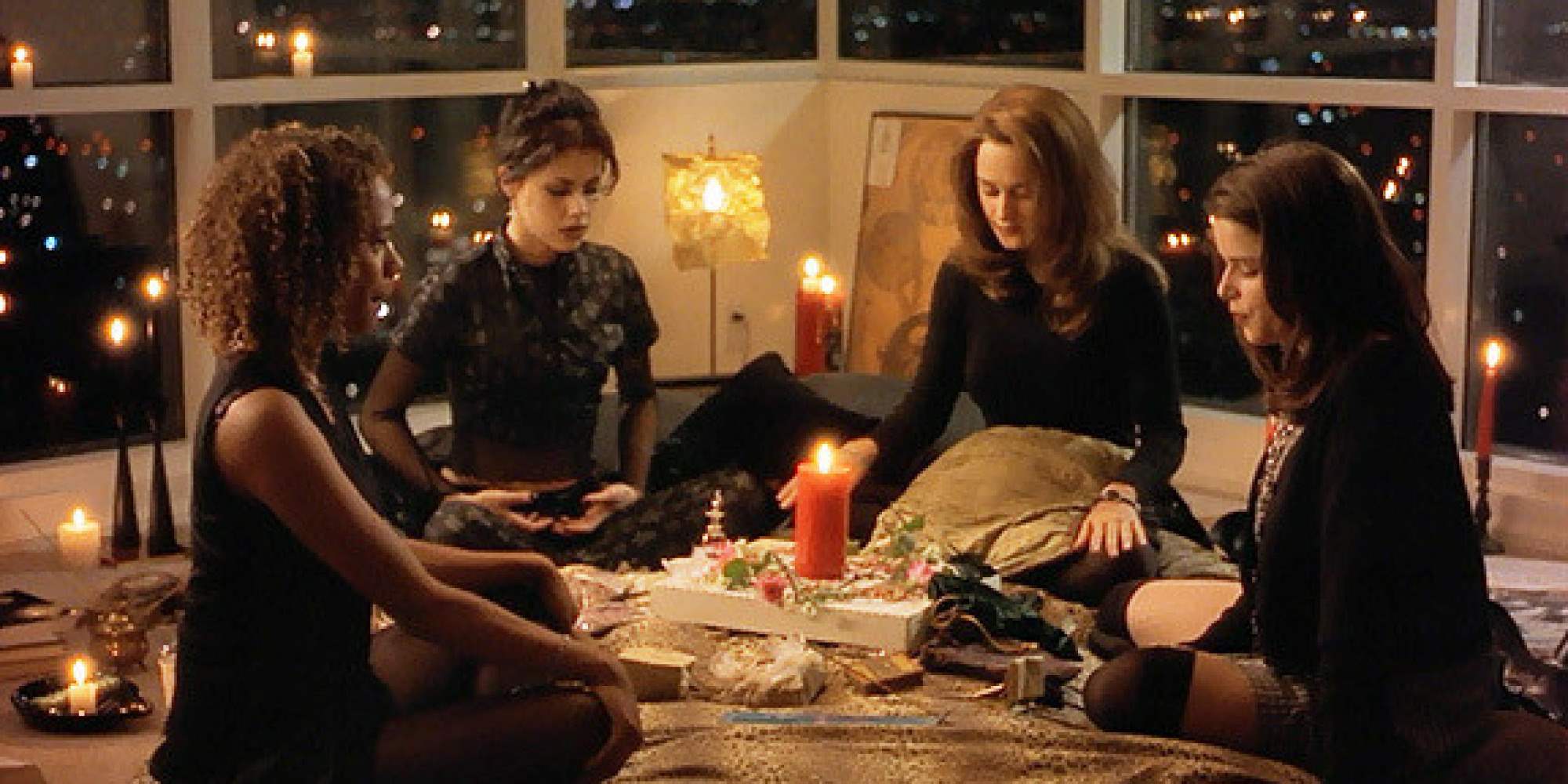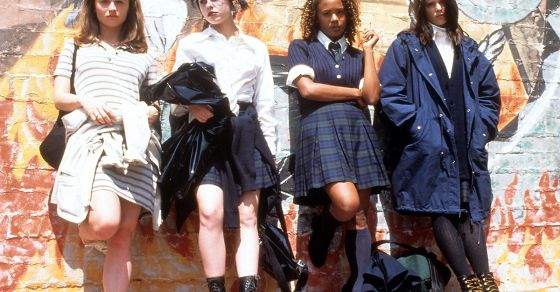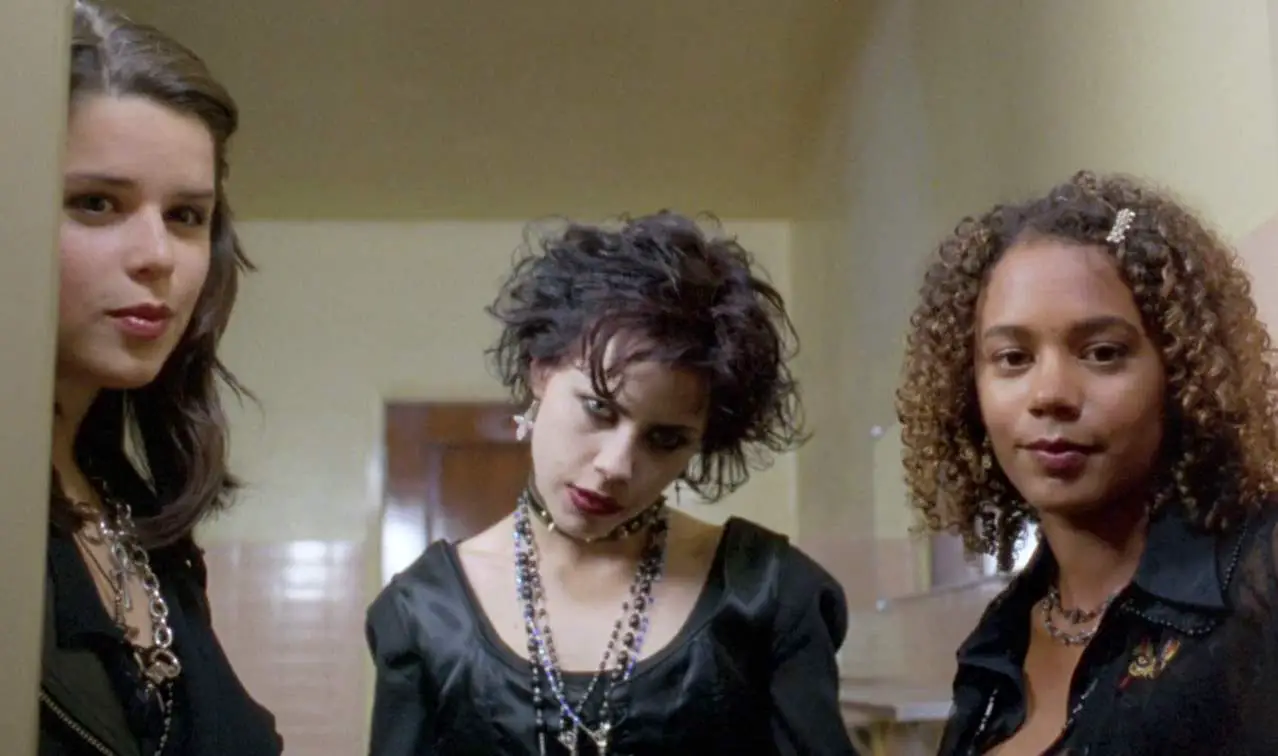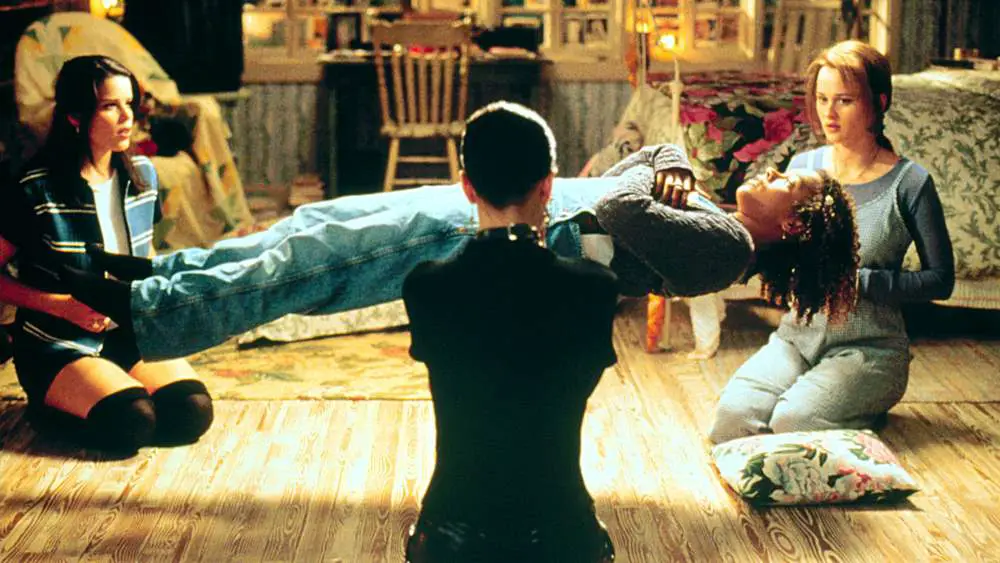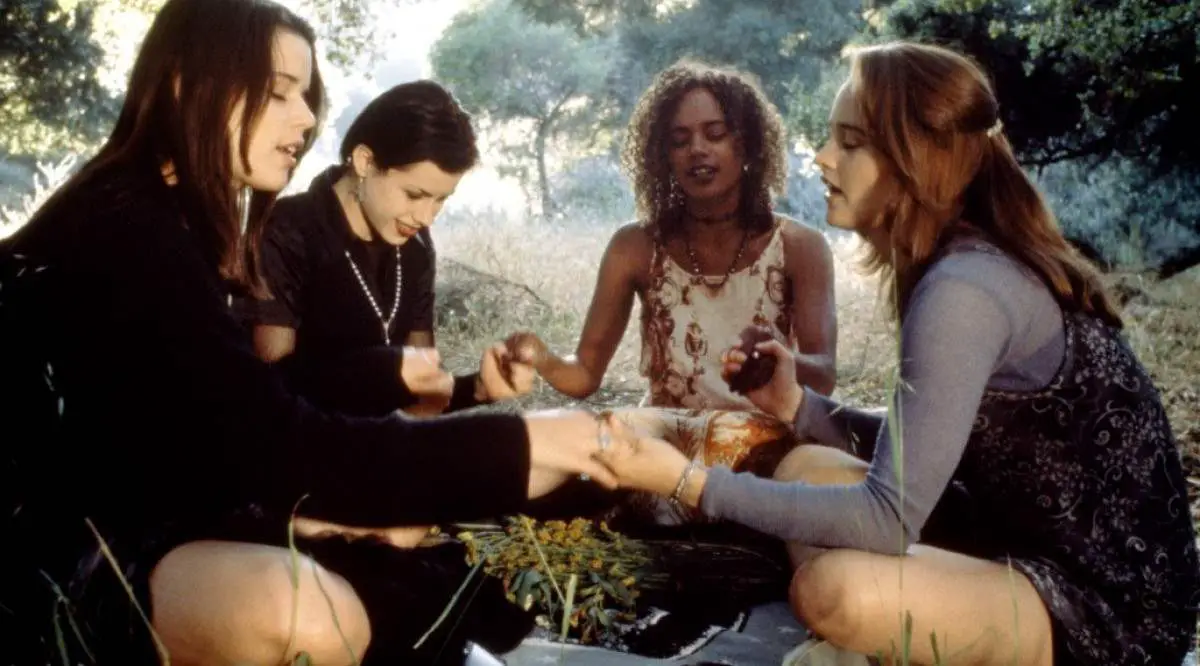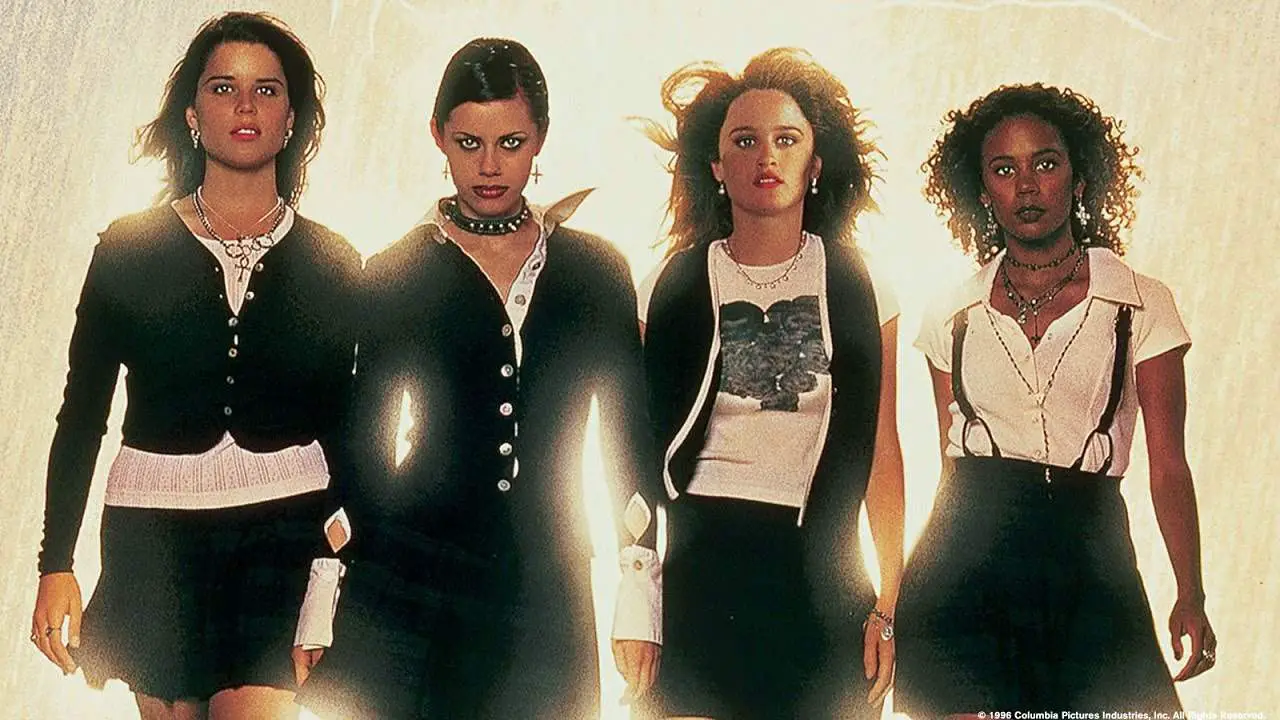We’re swiftly approaching two decades since the release of The Craft. 2016 will mark the 20th anniversary of a film that’s proven to be one of the most remembered horror hits of its decade. And that’s saying something, because a lot of ‘90’s horror drifted into obscurity. So why did The Craft succeed where so many others failed?
It’s actually a more complicated question than you’d think. While The Craft made money, it was a modest hit and has seemed to have an audience that has simply grown over time. Those who first saw it as teenagers when it was released are now passing it down to kids of their own. While certainly a product of its time, it’s something that will hopefully keep lending itself to discovery and rediscovery.
And there are a lot of reasons as to why that is. For example…
The Style.
The Craft has a unique style all its own. Its got a goth sensibility, but that doesn’t define the movie like it did in The Crow. There are different types of characters and different styles at work here, much of which comes down to the time in which the film was made. There’s a balance of horror and humor with a genuine coming of age story, and one that’s actually pretty impressive.
The Nostalgia.Let’s be real, The Craft is entrenched in the mid-90s and for those of us who grew up during that time, it will always hold a special place. I remember when the film was relatively new, even though the decade was probably over by the time I actually saw it, or at least close to it. The clothing, hair, makeup, these things are all too obvious. For me, the nostalgia I have with The Craft is much more related to that certain soft focus look that ‘90’s movies had as well as certain styles in phrasing and dialogue that just stand out as distinctly from that era.
Nothing ties a movie to its decade more than music and The Craft is certainly no exception. It has a really well put together soundtrack, including the score. Everything complements everything else and helps establish the tone and the pace of the overall film.
Robin Tunney is a strong and powerful lead in this film, giving a very assured and confident presence and providing us with an emotional center as every character around her gets more and more unstable. Neve Campbell is at her most vulnerable and really underrated. Skeet Ulrich shines as a very different kind of scumbag than he’d play in Scream and Rachel True is perfect as the really likable character you wish would make better decisions. But of course it’s Fairuza Balk that walks away with the whole movie. Her descent is so fascinating to watch and she plays so many layers in that character, handling each one of them perfectly.

The witchcraft in The Craft is presented in a very different way than your normal witch movie: It’s meticulously well researched. Fiction as it may be, there’s a ton of factual stuff in there. While a good amount of that was written into the script, much of it simply comes from the fact that Fairuza Balk was—and still is—a practicing Wiccan. She doubled as a consultant for all of the film’s magical elements to tell them what would actually happen if any of this story were to occur in real life. More than that, I love the way magic is used in The Craft, ultimately boiling down to a Spider-Man-ish message of “With great power comes great responsibility.” The Craft is an exploration of what happens when that kind of power is used for selfish reasons and how to overcome it.
Each character has a different use in mind for their magical abilities once they learn to master them. Rochelle wants to find a way to stand up to her racist bullies and put them in their place. Bonnie wants to rid herself of the scars that cover most of her body. Sarah wants the boy she likes to like her back and simply wants to be accepted and cared for in general. And Nancy wants everything. The cost of their power and the way it affects them individually becomes clearer and clearer as time goes on. Nancy, who wanted the world, is defeated and finds herself without any of the friends or family she had. It’s a pretty standard, classic storytelling move. She couldn’t even settle for a single thing in her life that needed changing. Instead, she shot for the stars, for ultimate power, perfectly willing to kill anyone she needed to in order to attain that. As always, it’s the one that shoots the highest that ends up crashing the hardest.
But The Craft isn’t about punishing young women for wanting to take control of their lives, far from it. It’s about understanding that you already have that power inside of you and how to use that in the right way. As goth as it looks, it winds up being a fairly optimistic film—at least for its lead character. There was certainly room for a sequel had they decided to go that route, but I don’t think it made enough money for that at the time. In the end, I’m kind of glad that it’s gone on to spread through word of mouth and become a cult classic of its era. In a time swarmed with teen horror, it still stands out because it’s about teenagers and is focused almost entirely on realistically dealing with issues teenagers face every day through the lens of horror and fantasy.
Also, Be sure to check out this piece on 10 Life Lessons We Learned from The Craft.

